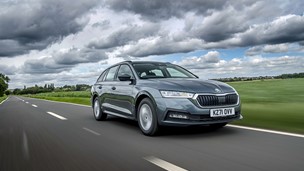Smoke coming from exhaust when accelerating?
Every now and again, our cars try to tell us something by bellowing clouds of smoke out of the exhaust. This is an issue more like to occur with older cars, but it can also potentially happen with newer models as well.
It's understandable if you're unsure how to react when you see some smoke coming out your car. For instance, does a big cloud of black smoke mean your car needs more oil? Or is the smoke a consequence of an even more serious issue instead?
Here we tell you how to make sense of your car's smoke signals. Of course, it is always best to take the car to a garage if you're in any doubt, but it’s good to know a little about what is going on internally.
If you own a diesel car and you notice smoke coming out of its exhaust, then you can check out our separate guide that focuses on smoke from diesel cars.
Do you have an older car that you are looking to scrap? Why not take a look at the 2017 Manufacturer Scrappage Schemes by clicking the link below:
Blue or Grey Smoke
If smoke that is coloured blue or grey is coming out of your car's exhaust pipe, this generally means that your car is a little bit too thirsty on the oil. If you're driving a car with an automatic transmission, make sure to inspect the oil being used by the transmission system, since a leak here could potentially be the reason for blue smoke.
If grey smoke is coming out all the time, you'll need to get to a garage as soon as possible, because this could be a sign that something pretty bad is going on. Potential issues can include a jammed turbocharger or leaking engine seals for example. Issues such as these could be pricey to repair, but less expensive compared to a full engine failure, so make sure to have it looked at as soon as possible to avoid larger, costlier problems down the line.
Intermittent blue smoke can be caused by a combination of factors, but most frequently it is caused by worn valve seats - a critical part of the engine. This used to happen most often on older cars built to run on leaded fuel, but which are using unleaded instead. However, it can also happen on newer cars that are driven particularly hard, or if they have been driven in adverse conditions with big variations in temperature etc.
In diesel engines, a pale blue smoke may mean that you have air in the fuel system, which would also mean you have a problem with your fuel pump or the fuel pipes. Blue smoke is generally bad news - the repairs are quite tricky and not a basic DIY job. Instead, a visit to a garage will likely be necessary.

White Smoke
White smoke from the exhaust system is usually not an issue. In fact, what at first appears to be white smoke may not actually be white smoke in the first place.
Instead, it could in fact be steam from condensated water that evaporates in the hot exhaust system. This will often happen when the engine is still cold. Once the engine warms up and the humidity has evaporated from the exhaust system, the white smoke disappears. Generally, this is nothing to be worried about, though if it continues after the engine has warmed up it probably is smoke instead, in which case you may have a problem.
If your car has an even flow of white smoke, even when it is running nice and warm (after, say, 30 miles), make sure you check your coolant fluid. If it's low you may have a leak in the head gasket, a problem with the cylinder head, or a cracked seal somewhere. The best way to avoid any of this is to make sure to keep your cooling fluid topped up, and get to a garage when you have a chance. It may be no big deal, but it could be serious.
If huge billows of white smoke are coming from the car, but not necessarily from the exhaust system, then you may have a problem with your brake fluid. The hydraulic oil that keeps the pressure in your brake system smokes a lot when it comes into contact with something hot (such as your exhaust system or the hot brake discs). It may be a leaking brake cylinder or crack somewhere in the brake system. Obviously, this can be quite dangerous, and it's worth taking your car to the garage for a quick once over.
In diesel engines, white smoke may signify fuel not being burned well enough due to an injection problem, air delivery problem, or any of the problems noted above.

Black Smoke
Black smoke coming out of your car probably means that the engine is getting either too much fuel or too little oil.
For cars with carburettors (i.e non-fuel-injection cars), it might be to do with a problem with the fuel supply (more specifically a defective fuel pump, problem with the purity of the fuel, or a blocked fuel filter). Alternatively it could be to do with the air supply (problems with the vacuum system), problems with the carburettor itself, or a dirty air filter that wants changing. The latter issue is probably the simplest thing to change yourself; if that doesn't do the trick, it may be worth having a mechanic look at it.
If you have a car with an injection engine, then the black smoke may be due to a problem with the injectors, the on-board computer or the sensors. Some times turning off the engine and restarting it may reset the computer, and the problem can go away, but generally it needs to be inspected by a mechanic.
With diesel engines specifically, black smoke means that the engine is ’running rich’ - too much fuel or too little air. This may be due to any of the problems above, or just because the engine is working hard. If you are experiencing black smoke at low load or at idling, get to a garage quickly, as it may be an early indication of a more serious problem.

Smelly Smoke
Do the emissions from your car's exhaust smell a bit like eggs? Have you noticed a lack of power, or high fuel usage?
This could because of a serious issue with your timing belt, the ignition system, or something like a damaged/missing exhaust filter. Whatever the possible cause, it's worth taking your car to a garage if it's emitting smelly smoke. Diesel fumes are especially poisonous, so it's worth getting it checked out if only for the sake of other road users!
Or why not try our Car Finder?
New Car Buying Survey
Are you looking to buy a new car in the next 12 months? Perhaps you have bought a new car in the last 12 months? We've created a 5 question survey that should take no longer than 3 minutes to complete. All feedback is anonymous and will help with our research for future articles.






